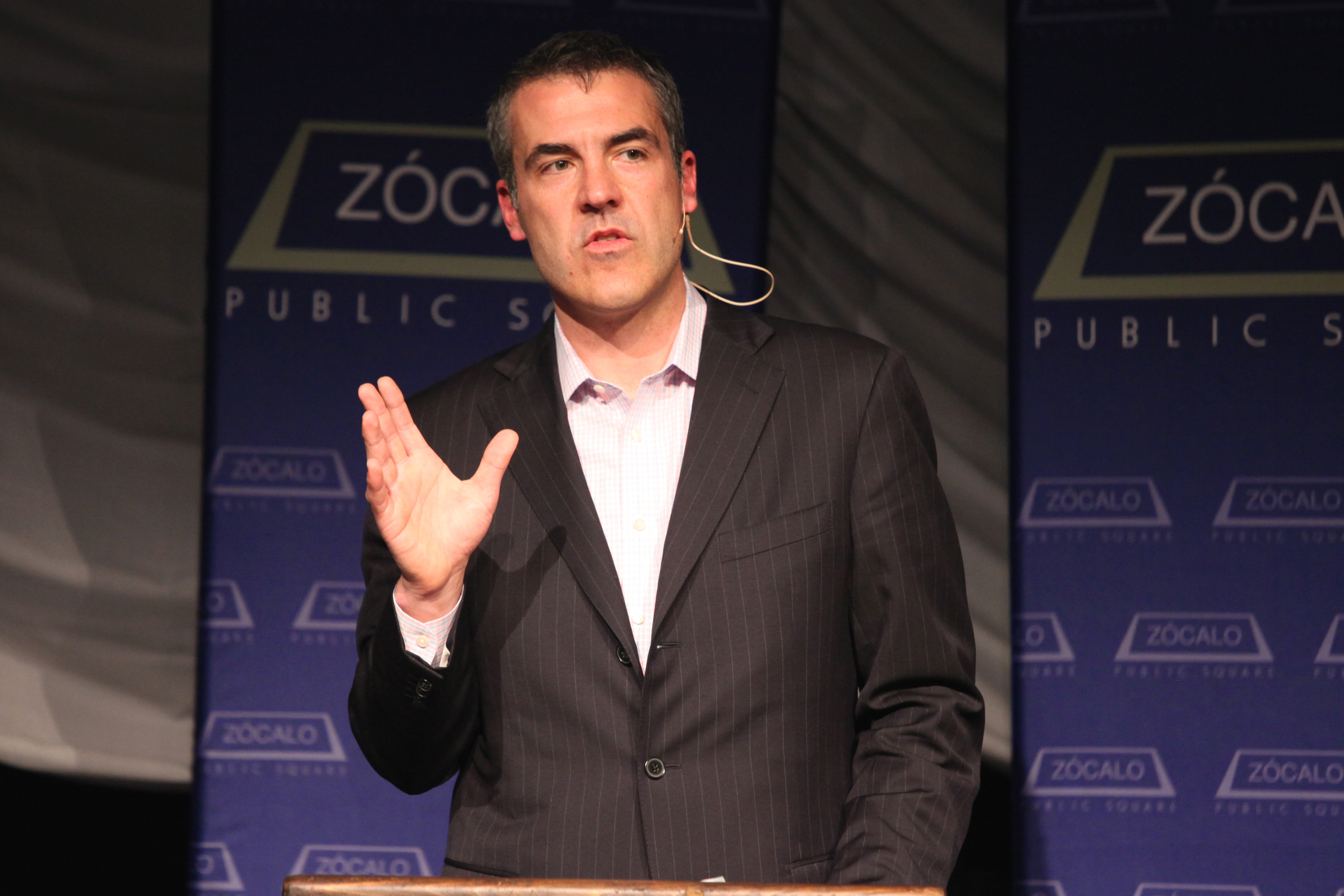
When planes struck the Twin Towers in 2001, John Fabian Witt–author, historian, and Yale Law School Professor–found his thoughts turning to history and the laws of war.
“All of the policies that have happened since 9/11 have happened inside the American tradition. Even in the furthest excesses of the Bush administration, it wasn’t that far off,” Witt stated in response to a question about acts of war versus criminal acts. “The idea of moving a conflict outside of the US is as old as the US.”
However, as a historian, Witt prefers to focus less on contemporary affairs and more on the origins of some of the questions with which we’re grappling today. This has prompted him to look into the legal contributions of US Army General Winfield Scott during the Mexican War in the 1840s. “My historian’s training makes me want to say, let’s talk about the 19th century,” he said.
The Mexican War and The Rise of Guerilla Tactics

The Mexican War fundamentally changed the laws of war, according to Witt. Having fought non-traditional wars with Indians, many officers hoped that war with Mexico would “at last be the opportunity to fight traditional European-style warfare,” with graces such as truce flags and prisoner exchanges.
But those hopes were quickly dashed. By 1847, any rules were quickly being abandoned. This was partly because of how Americans viewed Mexicans and partly because the volunteer U.S. Army of the 1840s was prone to riotous, delinquent behavior. (Even General Zachary Taylor, who would later become a U.S. president, lamented that many members of the volunteer army were thieves and cowards.)
In early 1847, Mexican President Pedro María de Anaya called for guerilla tactics to disrupt American operations. “For the volunteer army, this caused outrage to no end,” Witt said. They started to engage in retaliatory acts. In particular, groups like the Texas Rangers and the Arkansas Militia started round up and kill Mexican boys.
Winfield Scott Saves the Day

“Winfield Scott was the very best General they could have sent into the situation,” Witt said, calling Scott the David Petraeus of his time. Scott was originally a lawyer. He had fought in the Indian wars, observed European military operations, and even created a drill manual.
Scott arrived in Mexico in 1847 and witnessed growing disorder. He realized that what he had on his hands was “a discipline deficit,” because the military didn’t have the authority to prosecute its soldiers internationally.
One story illustrated this phenomenon.
In late 1846, General Taylor wrote to President James Polk with a question: A volunteer had committed a crime after the war had ended. What could be done? Taylor was told to send the suspect home unpunished, because neither Taylor nor state courts had any authority to engage in prosecution. Scott found this hamstringing explanation intolerable.
Finally, Scott asked for an extension of the court martial jurisdiction, and Congress gave Polk the authority to prosecute. This led to the creation of General Order Number 20, which established “military commissions” as a solution to the twin problems of US depredations in Mexico and of guerilla warfare. The institution of this led to over 300 prosecutions for rape, murder, desecration of churches and other crimes.
Witt described the councils of war as “mysterious and ephemeral.” Scholars have been unable to find transcripts of the prosecutions of guerillas, “but there were a number of them,” Witt says, as evidenced by anecdotes and memoirs.
The Ends and the Means, Machiavelli Style

The 1840s proved to be a pivotal moment in legal developments relating to warfare. Centuries earlier, St. Augustine had established the “just war” theory, which held until the Enlightenment in the 18th century, when people realized the problem with a “just war” was that “everyone was convinced their side was just,” Witt quipped.
The only way to create constraints on the practices of war was to get the contending armies to restrain themselves and create some “brackets” or codes of understanding.
“That decision to bracket justice for humanitarian purposes is what underwrites Prisoner of War status,” Witt explained. The P.O.W. is not a criminal; he is acting under an enemy king. Your acts aren’t necessarily crimes if you are just following orders of the state.
The “reciprocity explanation” creates a humanitarian equilibrium during a time of war, Witt elaborated during the Q & A. “Everyone agrees that killing prisoners is not helpful,” he noted. “Stable reciprocity is good for all.” For Witt, this is inspirational.
It was natural for the realms of justice and humanitarianism to be pulled back together after the debates of the Enlightenment. (In 1818 Congress spent months debating a hanging carried out by Andrew Jackson and a shady military tribunal.) “It was natural for Scott to close that gap still further,” Witt stated. “And natural for him not even to notice exactly what it was that he was doing.”
These initiatives of inventing and institutionalizing the war crime had implications for the Civil War, during which Abraham Lincoln re-introduced “ends based reasoning” in the Emancipation Proclamation. Many of Scott’s practices continue to hold sway to this day.
Ultimately, the law of war isn’t like a “stop sign” that we simply follow, Witt explained. The law is “a public language for discussing means and ends,” he said. “It’s a vocabulary of talking about extraordinarily difficult moral problems.”
See event photos here.
Watch full video here.
*Photos by Aaron Salcido




Send A Letter To the Editors